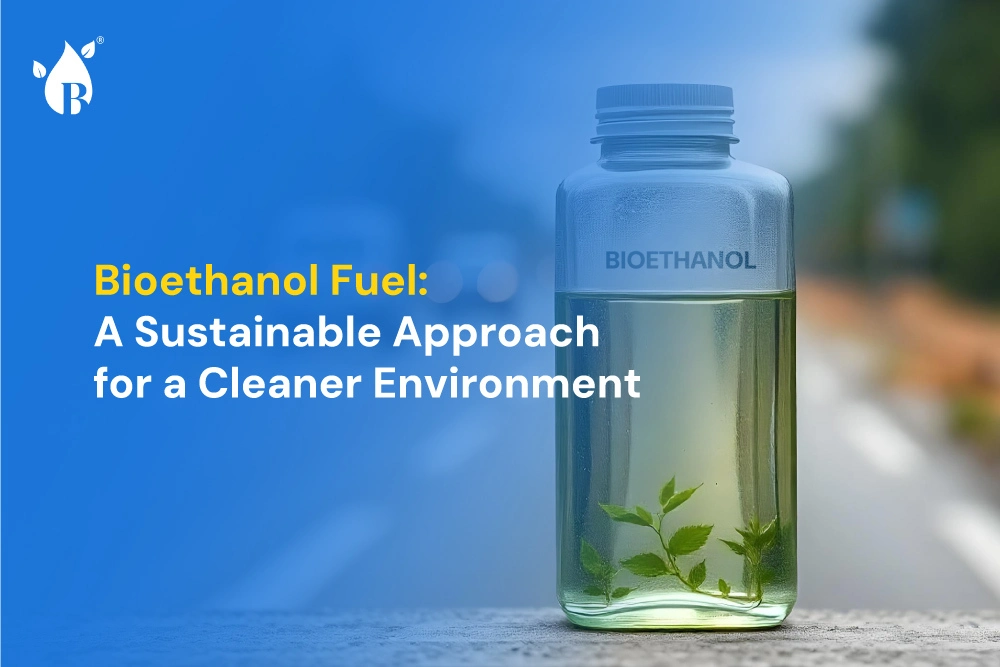
Bioethanol is a renewable fuel derived from biomass sources like corn, sugarcane, and even organic waste. As an eco-friendly alternative to fossil fuels, it helps reduce greenhouse gas emissions, supporting a cleaner environment and aiding in the global fight against climate change.
Advantages of Bioethanol
- Renewable and Carbon-Neutral
One of the key advantages of bioethanol is its renewable nature. Unlike fossil fuels, bioethanol is made from plant-based materials that can be replanted. When burned, bioethanol releases CO2, but this is offset by the carbon absorbed by the plants grown to produce it, making it a carbon-neutral fuel. This characteristic is crucial for reducing the overall carbon footprint, promoting sustainable energy use, and meeting climate targets.
- Reduced Greenhouse Gas Emissions
Bioethanol fuel produces fewer CO2 emissions and pollutants like nitrogen oxides compared to gasoline. By switching to bioethanol, we can effectively reduce greenhouse gases and air pollution, enhancing air quality and advancing efforts to combat climate change.
- Boosting Energy Independence
Another advantage of bioethanol is its potential for energy independence. Bioethanol can be produced locally, reducing reliance on imported oil. Supporting bioethanol fuel production also stimulates domestic biofuel industries, creating jobs, and fostering rural economic development.
How is Ethanol Used as a Biofuel in Transportation?
Bioethanol can be blended with gasoline in various proportions, such as E10 (10% ethanol) and E85 (85% ethanol), and used in standard vehicles without modifications. The versatility of bioethanol for direct use as a fuel blend makes it a practical and widely used option for greener transportation, helping to reduce emissions in daily commutes and long-distance travel alike
Sustainable Waste Management Through Bioethanol
In addition to traditional crops, bioethanol can be produced from agricultural residues and organic waste. This allows bioethanol production to contribute to sustainable waste management, converting waste into energy. Such waste-to-energy conversion supports a circular economy and decreases landfill waste.
Is Bioethanol Environmentally Friendly?
Yes, bioethanol is considered environmentally friendly when produced responsibly. It can significantly reduce emissions and is sourced from renewable biomass. However, to maximize environmental benefits, it’s crucial to prioritize non-food biomass sources, enhance production efficiency, and support biodiversity in bioethanol production practices.
Challenges and Responsible Production
While bioethanol offers notable advantages, responsible production practices are essential. This includes using non-food biomass sources, protecting biodiversity, and optimizing production processes to enhance sustainability. Addressing these challenges is vital for bioethanol to fulfill its role in a sustainable, low-carbon future.
Bioethanol’s Role in a Low-Carbon Future
Bioethanol fuel is a promising renewable energy source that reduces emissions, supports energy independence, and contributes to a sustainable future. With responsible production, bioethanol can significantly support the shift towards a low-carbon, eco-friendly energy landscape.




